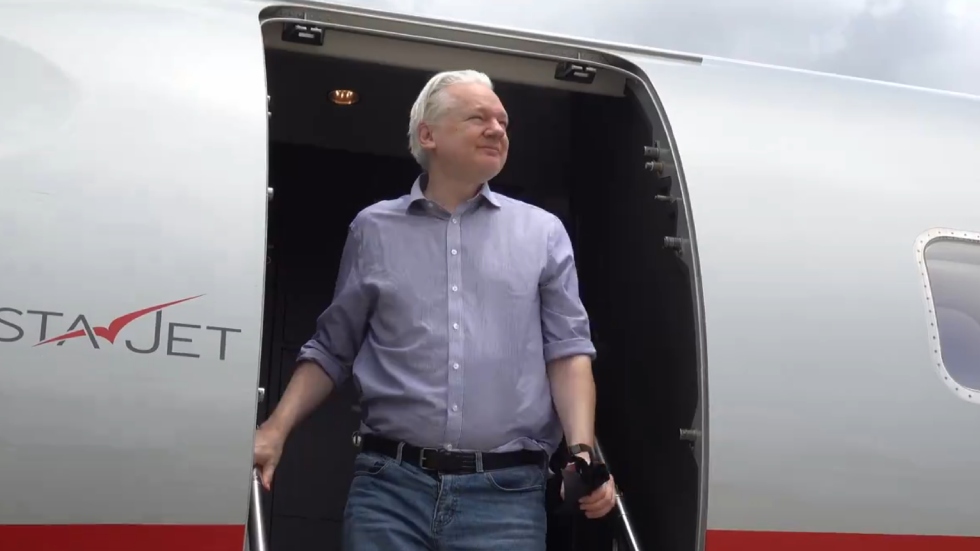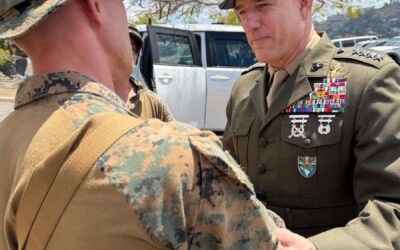After a day of travel across Eurasia, WikiLeaks founder Julian Assange arrived in the US territory of the Northern Mariana Islands for a court date. Assange was forced to plead guilty to secure his freedom after over 10 years of confinement in the Ecuadorian Embassy in London and the UK’s Belmarsh prison.
On Wednesday, Assange pleaded guilty to one count of violating the Espionage Act. Following a prearranged agreement, the journalist was sentenced to 62 months in prison, time he already served in the UK. After the trial concluded, Assange was free to return to his home country of Australia.
During the court proceedings, Assange said he was guilty of violating the Espionage Act. “Working as a journalist, I encouraged my source to provide classified information to publish it. I believe the First Amendment protected that,” he told the court. “I accept it’s a violation of an espionage statute.”
He added, “The First Amendment and the Espionage Act are in contradiction.”
When Judge Ramona Villagomez Manglona asked the journalist if he fully admitted his guilt, his legal team responded that Assange “understands that no court has held there is a First Amendment defense to the espionage act … and is pleading guilty on that basis.”
For Assange, the plea agreement ended more than a decade of torment at the hands of US authorities after his outlet WikiLeaks published troves of embarrassing and incriminating classified US documents.
Before the sentence was announced, US Justice Department official Matthew McKenzie admitted there was no “personal victim here,” and that Assange’s actions did not harm anyone. After Judge Manglona sentenced Assange, she remarked, “It appears this case ends with me here in Saipan,” referring to the capital of the American Pacific territory.
Civil rights groups deemed the Espionage Act charges against Assange as a grave threat to press freedom. Historically, Washington has only attempted to charge leakers for handling state secrets to outlets, not the journalists who published the documents. Publishing classified information is considered a standard journalistic practice.
Some First Amendment advocates are concerned that Assange’s guilty plea will set a dangerous precedent that will allow Washington to continue to target journalists who create problems for the White House.
However, Bruce Afran, a US constitutional lawyer, argued that Assange’s plea will not expand the Justice Department’s powers to target journalists. “A plea is not precedent. Precedent consists of a decision interpreting a matter of law by an appeals court that will govern future cases on the same legal principle,” he explained. “In contrast, a plea is merely a factual agreement by a given defendant that they did a certain act, but does not bind future defendants in similar cases.”
Prior to accepting the plea agreement, Assange’s supporters were concerned about the 52-year-old’s health after so many years in prison. Additionally, they were worried that if he were extradited to the US, he would not survive the process.
WikiLeaks has credited widespread public support for Assange with helping to pressure the US government to accept the plea deal. Assange is expected to leave the Northern Mariana Islands for Australia shortly after his legal proceedings conclude.
Julian’s freedom came with a final massive price tag for the journalist. The Australian government him charged him over $500,000 for his flights over the past 48 hours. Assange’s team is seeking donations to help cover the cost.
URGENT: Emergency appeal for donations to cover massive USD 520,000 debt for jet.
Julian’s travel to freedom comes at a massive cost: Julian will owe USD 520,000 which he is obligated to pay back to the Australian government for charter Flight VJ199. He was not permitted to fly… pic.twitter.com/J6sTbXij53
— Stella Assange #FreeAssangeNOW (@Stella_Assange) June 25, 2024
This article was originally featured at Antiwar.com and is republished with permission.

































